1. TikTok Ban and the Fight Over Data
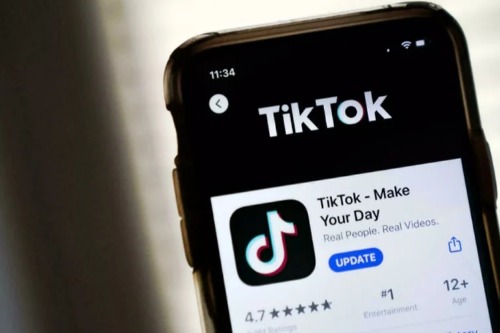
Everyone’s yelling about banning TikTok, but very few can explain what the actual legislation says. The debate centers on national security concerns, especially Chinese access to American user data. But the bill Congress passed doesn’t mention TikTok by name—it targets any foreign-owned apps the government deems a threat. So this is more about government control over tech platforms than just dancing videos.
The real sticking point is whether this sets a precedent for future digital censorship. Is this about protecting kids and data, or flexing federal power? Meanwhile, people are panicking or celebrating based purely on headlines. The nuance is buried under TikTok drama and influencer freak-outs.
2. The College DEI Crackdown

Diversity, Equity, and Inclusion programs are getting axed in public universities across red states, but no one agrees on what DEI even means. Critics say DEI enforces ideological conformity, while defenders argue it’s essential for leveling the playing field. What’s missing is a clear, agreed-upon definition of what these programs do day-to-day. Without that, the debate becomes more symbolic than substantive.
Some states, like Florida and Texas, are banning DEI outright, while others are doubling down on it. It’s turned into a proxy war about race, gender, and free speech on campus. Most people haven’t read the policies being removed—or the ones replacing them. It’s just a shouting match based on vibes and headlines.
3. AI Copyright Lawsuits

Artists and authors are suing AI companies over copyright, and it’s getting messy. The argument hinges on whether training an AI on copyrighted content counts as “fair use.” But try explaining that to the average person without spiraling into tech-legal jargon. Most people just assume their work is being stolen without understanding the mechanics.
Meanwhile, courts are trying to decide if AI training is like reading a book or copying it. That’s a massive distinction that could shape everything from movies to music to code. But because the stakes are so abstract, the conversation has devolved into “AI bad” vs. “innovation good.” It’s way more complicated than that, but the nuance is lost online.
4. Trans Youth Medical Care Bans
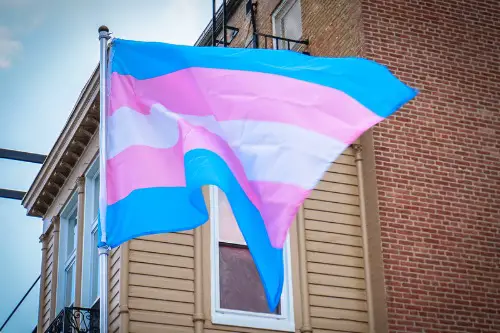
There are heated state battles over whether minors should receive gender-affirming medical care, but very few people understand what that care actually involves. It’s not all surgeries and irreversible changes—most treatments for minors involve counseling and, sometimes, puberty blockers. But many are reacting as if these kids are walking into operating rooms at age 12. The laws being passed are often sweeping, with little attention to medical consensus.
Doctors and major medical associations overwhelmingly support access to gender-affirming care for youth, especially when paired with mental health support. But that hasn’t stopped states like Alabama and Tennessee from criminalizing it entirely. For many, it’s less about medicine and more about cultural signaling. That leaves families and providers caught in the middle of something they didn’t politicize.
5. The Electric Vehicle (EV) Backlash
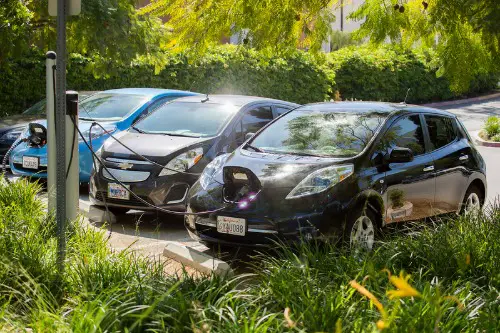
You’d think more EVs would be a nonpartisan win—less pollution, cheaper fueling, quieter streets. But somehow, EVs have become another culture war battlefield. Critics call them elitist or a scam, while proponents frame resistance as anti-science and pro-oil. Few people realize how much government policy is shaping the EV market behind the scenes.
Federal tax credits, manufacturing subsidies, and even charging infrastructure rules are all being quietly rewritten. The car companies are torn between appeasing Washington and responding to consumer skepticism. But most folks are arguing about Tesla or “freedom” instead of real issues like lithium mining or power grid demands. As usual, it’s vibes over facts.
6. The Supreme Court and “Chevron Deference”
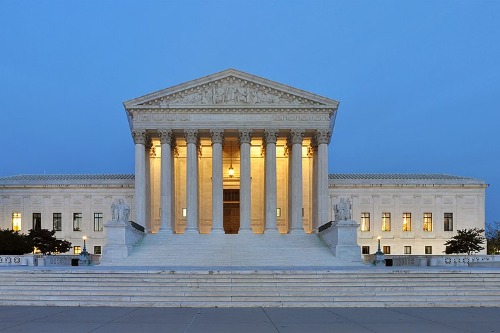
Unless you’re a legal nerd, you probably haven’t heard of Chevron deference—but it’s one of the biggest stories in American governance. The Supreme Court is poised to gut this long-standing doctrine, which lets federal agencies interpret ambiguous laws. That means courts, not experts, would make final calls on rules about healthcare, environment, and more. And that could seriously change how the government functions.
But explaining this to anyone outside D.C. is a nightmare. It’s complex, technical, and seemingly boring—until you realize it impacts everything from clean air to drug approvals. Partisans have started treating it like a doomsday scenario or a constitutional correction, without reading a single case file. Once again, people are choosing sides without knowing the stakes.
7. Campus Protests and “Free Speech”

Pro-Palestinian protests on college campuses have reignited debates over what counts as protected speech versus harassment or disruption. Universities are caught between students demanding justice and donors threatening to pull funding. Some arrests and disciplinary actions are being praised as necessary and condemned as fascist—often at the same time. But the actual speech rules on many campuses are murky at best.
The First Amendment doesn’t apply the same way on private campuses, and even public ones have to balance safety with rights. But that nuance is lost when everything gets live-streamed and clipped for social media. Suddenly, students are either heroes or extremists, depending on your timeline. The actual policies rarely get mentioned.
8. ESG Investing Wars

Environmental, Social, and Governance (ESG) investing is either smart capitalism or socialist creep, depending on who you ask. States like Florida and Texas have banned ESG strategies in public pensions, saying they’re politically biased. But ESG isn’t a single thing—it’s a set of criteria that vary wildly between firms and funds. That’s part of why no one can agree on what’s being banned or defended.
Supporters say ESG helps manage long-term risk, like climate impacts or human rights issues. Detractors claim it’s an excuse to push left-wing values onto companies. But if you dig into most anti-ESG laws, they’re not really about markets—they’re about ideology. Still, people treat them like economic revolutions.
9. The Border Wall Lawsuits

Biden paused most new border wall construction, but then resumed some under legal pressure—and everyone lost their minds. Progressives called it a betrayal, conservatives called it hypocrisy, and no one read the fine print. Some of the construction was required by law, because funding was already approved. Biden didn’t have as much choice as people think.
Meanwhile, lawsuits are flying over land seizures, environmental concerns, and contract obligations. The debate is now more about symbolism than policy: walls = security or racism, depending on your perspective. In reality, most illegal immigration happens through legal ports of entry, not open deserts. But that hasn’t stopped the outrage machine from spinning.
10. School Book Bans and “Obscene” Content

School districts are removing books from libraries at a historic rate, often citing “obscenity”—but the definitions are vague and inconsistently applied. Books about LGBTQ+ characters or racial history are frequent targets, sparking national fury. Parents say they want more control; librarians say they’re being threatened. But hardly anyone’s reading the books being banned.
The term “age-appropriate” has become a political football. Some removals are prompted by a single parent complaint, not any actual student controversy. This isn’t a clear-cut censorship issue—it’s about clashing visions of childhood and morality. But it’s being fought like a holy war.
11. Crypto Regulation Chaos

Crypto fans say they want clear rules, but freak out every time the government tries to write them. The SEC is cracking down on exchanges like Coinbase and Binance, but the legal arguments are murky. Is crypto a security? A commodity? A currency? No one can agree—including the regulators themselves.
So the industry exists in this weird gray zone where rules shift constantly, depending on which agency shows up. Some call it innovation; others call it the Wild West. And while crypto Twitter treats every move as either sabotage or salvation, the actual consumer protections remain weak. The noise is drowning out the real risks.
12. Parental Rights Bills
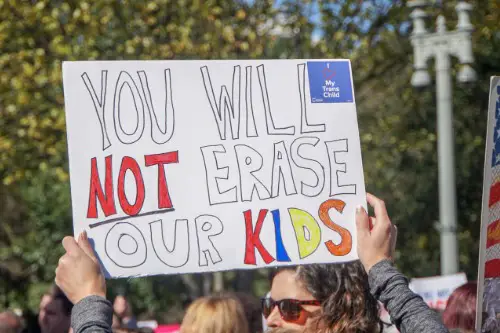
Several states have passed laws giving parents more control over what kids are taught in school, especially about gender and race. The term “parental rights” polls well, but the laws are often written so broadly they confuse everyone. Teachers aren’t sure what they can say. Administrators are afraid of lawsuits.
Some of these bills require schools to inform parents if a student asks to use different pronouns, which critics say outs trans kids. Supporters frame this as transparency, but the privacy implications are huge. It’s become a battle of control: who gets to decide what’s “appropriate” for children? And again, few have read the fine print.
13. Ukraine Funding Fatigue

America has sent tens of billions of dollars to Ukraine, and public support is starting to waver. But the politics are confusing—both Democrats and Republicans are split on whether to keep it going. Isolationists say it’s a waste; others argue it’s vital for global stability. But most voters don’t understand where the money’s actually going.
Some funds are for weapons, some for humanitarian aid, and some go to support allies in the region. But cable news often paints it as a blank check. That’s fueled a narrative that Ukraine is draining America’s resources, even as defense contractors thrive. Everyone has an opinion, but very few have the receipts.
This post 13 Controversies Right Now That No One Actually Understands but Everyone’s Picking Sides On was first published on American Charm.


